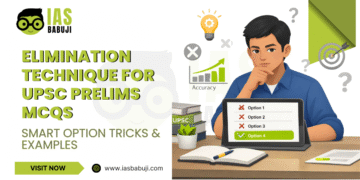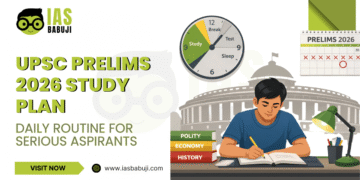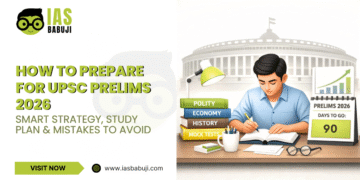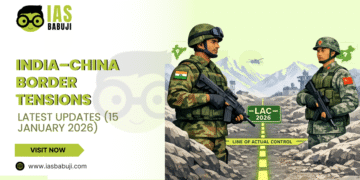The interview is the most common and difficult since you must face the examiners and respond to each question. You will not be able to impress them if you lack information or speaking skills, which will result in exam failure. In the IAS interview, what should the first words be? How to introduce yourself in an interview? What kind of questions are asked in a UPSC interview? Are you concerned about such queries? Best self introduction for an interview in English? Your responses are listed below. We’ll talk about it here.
- Introduction: How to Introduce Yourself in an Interview
- How to ‘Introduce Yourself’ in the UPSC IAS Interview
- Preparing for the Best Self Introduction in English
- UPSC Interview Tips: How to Introduce Yourself in an Interview?
- Conclusion- How to Introduce Yourself in an Interview
- FAQ- How to Introduce Yourself in an Interview
- Editor's Note | How to Introduce Yourself in an Interview
Introduction: How to Introduce Yourself in an Interview
The UPSC prelims examination is the first step. The preliminary exam is an objective type test that consists of two papers, one for general studies and the other for aptitude. Aspirants who pass the preliminary exam will be required to take the civil service exam. The main examination is a nine-paper descriptive test. Only those who pass the mains will be invited to the final step of the exam, the personality test, also called the interview. You might be familiar with the UPSC syllabus and feel comfortable taking the UPSC prelims and mains. After all, intensive studying and revision can help you pass even the most difficult tests. The UPSC board interview, on the other hand, can be a nerve-wracking experience.
The UPSC interview is a personality exam in which the board members assess the talents of the candidates who have been shortlisted for positions such as IAS, IFS, IPS, and others. So, in order to impress the exam panel, one must be familiar with the kind of questions that are frequently asked in interviews. The questions cover a broad range of topics, from basics to in-depth study. We’ve provided an overview of IAS Interview Questions and Answers to help you prepare for your UPSC interview. Further, let’s talk about How to Introduce Yourself in an Interview? Best self Introduction for the interview in English and so on.
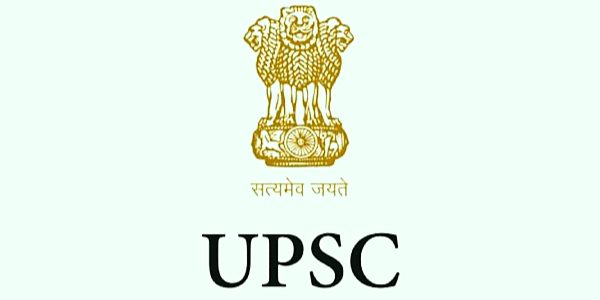
How to ‘Introduce Yourself’ in the UPSC IAS Interview
Recognize Your Personality
The first question asked when you get into the interview room is your introduction. It is claimed that the first impression is the final impression, which is true in this case. It would help if you delivered your introduction with zeal and accuracy. Your introduction should be firm and assured. The first couple of phrases of your introduction should include your entire name, education, work experience, and unique interests. Everything must be said with the utmost honesty and caution. Candidates were asked the most fundamental questions in personal interviews. The interviewer will have the opportunity to assess your skills and shortcomings, as well as your hobbies, career aspirations, and previous accomplishments, during this round. As a result, make certain you pay attention to each question and respond honestly and confidently.
Recognize the Important Sections to Answer
You may have gone over numerous topics and dimensions while studying for the UPSC exam, but you must be a clearly concentratedly deeper individual. Consider what you’ve accomplished thus far. People who have graduated could give the UPSC exam. You must have done things in your school and college if you have the attributes and aptitude to be in the administrative powers. Recall the positive aspects and make a point of mentioning them.
You must emphasize the qualities that you are aware the UPSC is looking for. At this level, the interviewer will ask you some questions focused on your profile, career goals, and aspirations. This will assist the panel in thoroughly and clearly analyzing your background. The interviewer will be looking for you to justify your professional experience or educational background in this round, so make sure you answer the questions logically. During the interview, take 4-7 minutes to introduce yourself.
Bring your imagination to the table.
You must be self-assured as well as creative in a variety of ways. You must come up with different ways to respond to your query. Also, You must put your communication and speaking abilities to good use if you have them. A better conclusion is the result of good communication, and your conclusion will be the best. In your introduction or the questions about your life, you should strive on providing some attention-grabbing elements. Don’t say anything that doesn’t make sense or is merely a ruse. If something motivates you, talk about it, but don’t just talk about it for the sake of talking about it.
Knowledge-Based Question
Knowledge-based questions are the most important elements of the test that are used to assess your knowledge in the field. For example, if you want to be a UPSC CSE aspirant, you need to be familiar with the job description and central government regulations. In addition, knowledge of current events or what is going on in the world will offer the candidate an advantage. Therefore, The interview panel will ask you about current events to see how active and alert you are in acquiring knowledge. IAS aspirants should be aware that the majority of the questions will be about new laws, politics, sports, awards and recognition, social movements, and so on.

Preparing for the Best Self Introduction in English
The purpose of the interview is to assess the candidate’s social characteristics and determine whether or not their personality is compatible with that of a Civil Services officer. If a candidate conveys the image of not being up to standard, their chances of being chosen are diminished. Let us now present the best self introduction in English for the interview.
- Your introduction should be short and no longer than 4-7 minutes. Maintain a sense of calm in your response.
- The 1st couple of sentences of your introduction should include your entire name, education, work experience, and unique interests.
- You should emphasize the aspects that you know the UPSC is looking for. For example, if you have led a group of individuals in your university or organization, mention it.
- In your introduction, add some attention-getting information. Include an influential individual who inspires you.
- Once you’ve decided what you’ll say, write it down, so you don’t forget. Still, Have a question about How to Introduce Yourself in an Interview? You must include the following information in your final text:
- Name
- Education
- Experience
- Abilities
- Hobbies and special interests
- Special abilities (knowing foreign languages, etc.)
- Career and life objectives
- Do a public reading of your self-introduction. You must be conscious of your own voice. Please make sure that your parents or friends are aware of it.
- Make sure you practice until you can speak in a natural, conversational manner.
This is how you should begin your English self introduction for the interview/ Introduce yourself.

UPSC Interview Tips: How to Introduce Yourself in an Interview?
How to Introduce Yourself in an Interview To impress the UPSC interview panel, follow these few UPSC interview tips:
- “The first impression is the most essential .” Your interview’s first five minutes are crucial. It’s vital to make a reputation for yourself at this moment in time.
- Maintain a cheerful attitude. Also, a gentle smile on your face. Keep a positive body language. Dress formally, with proper grooming. Dress accordingly for the scenario.
- Be courteous, gently knock on the door and respectfully ask, “May I come in?” Don’t hurry in after asking; instead, wait for the board members’ response before entering. Approach the situation calmly and confidently. Greet each member of the board as you enter the room. Sit up straight and face the board members at all times
Other tips: How to Introduce Yourself in an Interview
- Maintain a clear tone and complete sentences; do not swallow half-words, and emphasize the syllable wherever it is needed. To begin, think about your earlier days. Make sure you provide the members of the board with a quick overview of your life. They will gain an understanding of your whole lifestyle by knowing where you were born, what educational institutions you attended, and so on.
- Give an indication of your academic and professional interests. It is critical to discuss your academics in detail. If you have any accomplishments, be sure to mention them. Make a point of mentioning your hobbies and interests. Make sure you’re being specific and honest. Please don’t give them a long list of activities that you don’t participate in.
- Tell them about your life’s ambitions and objectives. When you talk about where you want to go in five years, it’s impressive. This can earn you a lot of points if you quote it correctly.
- The board may try to deceive you with argumentative questions; do not fall for it; instead, debate the Board Members’ opinions and attempt to correct their remarks. Don’t criticize

Conclusion- How to Introduce Yourself in an Interview
Finally, the above article discusses How to Ace Your Best Self Introduction for the Interview, Introduce Yourself (Myself) in English, and so on. Everyone wishes to offer their all. Also, The first section of the interview is the introduction. Remember, you are one of the lakhs of IAS Exam candidates who passed the UPSC prelims and mains. Therefore Relax, take a deep breath, and concentrate. Remember to check the official website for the most recent UPSC and IAS exam information.
FAQ- How to Introduce Yourself in an Interview
The first sentences of your introduction should include your full name, education, work experience, and special interests. Tell them with sincerity about your life goals and objectives. Try to give your introduction in 4 to 5 minutes and cover all of the important points. Give your best self introduction for the interview.
The IAS interview round typically lasts 20 minutes and includes a variety of questions. However, there is no set time limit, and the interview may last longer depending on the topic of discussion.
Candidates may choose to proceed with the interview round in English, Hindi, or any other regional language.
Editor’s Note | How to Introduce Yourself in an Interview
Finally, learn all about How to Introduce Yourself in an Interview. We have included all of the relevant information for the UPSC IAS Interview Introduction in English. You will also discover links to the questions asked during your interview, as well as the official UPSC website. Finally, be honest with yourself and respond confidently. Best wishes on your IAS interview.


